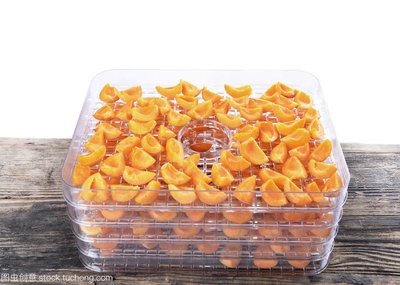
Content Menu
● Introduction
● Understanding Fruit Dryer Machines
● The Growing Demand for Fruit Dryer Machines in Pakistan
>> 1. Reducing Post-Harvest Losses
>> 2. Value Addition and Income Generation
>> 3. Export Opportunities
>> 4. Seasonal Availability
● Types of Fruit Dryer Machines Available in Pakistan
>> 1. Industrial Fruit Dehydrators
>> 2. Commercial Food Dryer Machines
>> 3. Solar Fruit Dryers
>> 4. Electric Food Dehydrators
● Impact on Pakistan's Fruit and Vegetable Processing Industry
>> 1. Increased Production Capacity
>> 2. Improved Product Quality
>> 3. Diversification of Product Range
>> 4. Employment Generation
● Challenges and Future Outlook
>> 1. Initial Investment Costs
>> 2. Energy Efficiency
>> 3. Training and Skill Development
>> 4. Market Development
● Future Outlook
● Conclusion
● Frequently Asked Questions
>> 1. What are the main benefits of using a fruit dryer machine in Pakistan?
>> 2. Are solar fruit dryers effective in Pakistan?
>> 3. What types of fruits are commonly dried using these machines in Pakistan?
>> 4. How does fruit drying contribute to Pakistan's economy?
>> 5. What are the challenges in adopting fruit dryer machines for small-scale farmers in Pakistan?
Introduction
Pakistan's agricultural sector has been experiencing a significant transformation in recent years, with the introduction of modern technologies aimed at improving productivity and reducing post-harvest losses. One such innovation that has gained considerable traction is the fruit dryer machine. These devices have become increasingly popular among farmers and food processors in Pakistan, offering a reliable method to preserve fruits and vegetables while maintaining their nutritional value and flavor.
Understanding Fruit Dryer Machines
Fruit dryer machines, also known as food dehydrators or fruit dehydrators, are specialized equipment designed to remove moisture from fruits, vegetables, and other food products. This process extends the shelf life of produce, reduces spoilage, and creates value-added products that can be sold at premium prices.These machines typically consist of several key components:
1. Drying chamber: A enclosed space where the fruits are placed for drying.
2. Trays: Multiple layers where the fruits are spread out for even drying.
3. Heating element: Generates warm air to facilitate the drying process.
4. Fan: Circulates the warm air throughout the chamber.
5. Temperature control: Allows users to adjust the heat level for different types of fruits.
6. Timer: Enables precise control over the drying duration.
The Growing Demand for Fruit Dryer Machines in Pakistan
The adoption of fruit dryer machines in Pakistan has been driven by several factors:
1. Reducing Post-Harvest Losses
Pakistan's agricultural sector has long struggled with significant post-harvest losses, particularly in fruits and vegetables. According to some estimates, these losses can range from 30% to 40% of total production. Fruit dryer machines offer a practical solution to this problem by allowing farmers to preserve their produce immediately after harvest, reducing spoilage and extending shelf life.
2. Value Addition and Income Generation
By transforming fresh fruits into dried products, farmers and processors can add value to their produce. Dried fruits often command higher prices in both domestic and international markets, providing an opportunity for increased income generation.
3. Export Opportunities
The global demand for dried fruits has been steadily increasing, presenting a lucrative export opportunity for Pakistan. With the help of fruit dryer machines, Pakistani producers can meet international quality standards and tap into this growing market.
4. Seasonal Availability
Fruit dryer machines allow for the preservation of seasonal fruits, making them available year-round. This not only benefits consumers but also helps stabilize prices and income for farmers.

Types of Fruit Dryer Machines Available in Pakistan
The Pakistani market offers a variety of fruit dryer machines to cater to different needs and scales of operation:
1. Industrial Fruit Dehydrators
These large-scale machines are designed for commercial operations and food processing plants. They can handle high volumes of produce and often feature advanced controls for precise temperature and humidity management.
2. Commercial Food Dryer Machines
Suitable for medium-sized operations, these machines offer a balance between capacity and affordability. They are popular among small to medium enterprises (SMEs) in the food processing sector.
3. Solar Fruit Dryers
Harnessing Pakistan's abundant solar energy, these eco-friendly dryers are gaining popularity, especially in rural areas with limited access to electricity. They offer a sustainable and cost-effective solution for small-scale farmers.
4. Electric Food Dehydrators
These compact machines are suitable for home use or small-scale operations. They offer convenience and ease of use, making them popular among urban households and small businesses.
Impact on Pakistan's Fruit and Vegetable Processing Industry
The introduction of fruit dryer machines has had a significant impact on Pakistan's fruit and vegetable processing industry:
1. Increased Production Capacity
With the ability to process and preserve larger quantities of produce, the industry has seen a boost in overall production capacity. This has led to increased output and efficiency in the sector.
2. Improved Product Quality
Modern fruit dryer machines allow for precise control over the drying process, resulting in higher quality dried fruits that meet international standards. This has enhanced the reputation of Pakistani dried fruits in global markets.
3. Diversification of Product Range
The availability of fruit dryer machines has enabled processors to experiment with a wider range of fruits and vegetables, leading to a more diverse product offering. This includes exotic dried fruits that cater to niche markets.
4. Employment Generation
The growth of the fruit drying sector has created new employment opportunities, particularly in rural areas. This includes jobs in machine operation, maintenance, packaging, and marketing of dried fruit products.

Challenges and Future Outlook
While the adoption of fruit dryer machines in Pakistan has shown promising results, several challenges remain:
1. Initial Investment Costs
The high upfront cost of industrial and commercial fruit dryer machines can be a barrier for small-scale farmers and processors. Government support and financing options are needed to make these technologies more accessible.
2. Energy Efficiency
Many fruit dryer machines rely on electricity, which can be costly and unreliable in some parts of Pakistan. There is a growing interest in energy-efficient models and alternative power sources, such as solar-powered dryers.
3. Training and Skill Development
Proper operation and maintenance of fruit dryer machines require specific skills. There is a need for comprehensive training programs to ensure operators can maximize the potential of these machines.
4. Market Development
While the demand for dried fruits is growing, there is still a need to develop both domestic and international markets further. This includes raising awareness about the nutritional benefits of dried fruits and exploring new product applications.
Future Outlook
The future of fruit dryer machines in Pakistan looks promising. As the technology continues to evolve, we can expect to see:
1. More energy-efficient and cost-effective models
2. Integration of smart technologies for remote monitoring and control
3. Increased adoption of solar and hybrid drying systems
4. Development of specialized dryers for specific fruits and vegetables
5. Greater focus on organic and premium dried fruit products
Conclusion
Fruit dryer machines have emerged as a game-changer for Pakistan's agricultural and food processing sectors. By addressing the critical issue of post-harvest losses and enabling value addition, these machines are helping to transform the way fruits and vegetables are processed and marketed in the country. As the technology continues to evolve and become more accessible, it has the potential to significantly boost Pakistan's agricultural productivity and competitiveness in the global dried fruit market.
The journey of fruit dryer machines in Pakistan is still in its early stages, but the impact is already evident. With continued investment, innovation, and support from both the public and private sectors, this technology could play a pivotal role in modernizing Pakistan's agricultural landscape and creating new opportunities for farmers and entrepreneurs alike.

Frequently Asked Questions
1. What are the main benefits of using a fruit dryer machine in Pakistan?
Answer: The main benefits include reducing post-harvest losses, extending the shelf life of fruits and vegetables, creating value-added products, enabling year-round availability of seasonal fruits, and opening up export opportunities for dried fruits.
2. Are solar fruit dryers effective in Pakistan?
Answer: Yes, solar fruit dryers are increasingly popular in Pakistan, especially in rural areas. They are effective in harnessing the country's abundant solar energy, providing a sustainable and cost-effective solution for small-scale farmers with limited access to electricity.
3. What types of fruits are commonly dried using these machines in Pakistan?
Answer: Common fruits dried in Pakistan include dates, apricots, figs, mangoes, and various berries. However, the versatility of modern fruit dryer machines allows for the drying of a wide range of fruits and vegetables.
4. How does fruit drying contribute to Pakistan's economy?
Answer: Fruit drying contributes to Pakistan's economy by reducing food waste, increasing the value of agricultural products, creating employment opportunities, and generating export revenue through the sale of dried fruits in international markets.
5. What are the challenges in adopting fruit dryer machines for small-scale farmers in Pakistan?
Answer: The main challenges include high initial investment costs, lack of awareness about the technology, limited access to financing, and the need for training in proper operation and maintenance of the machines. Overcoming these challenges requires support from government agencies and agricultural extension services.












